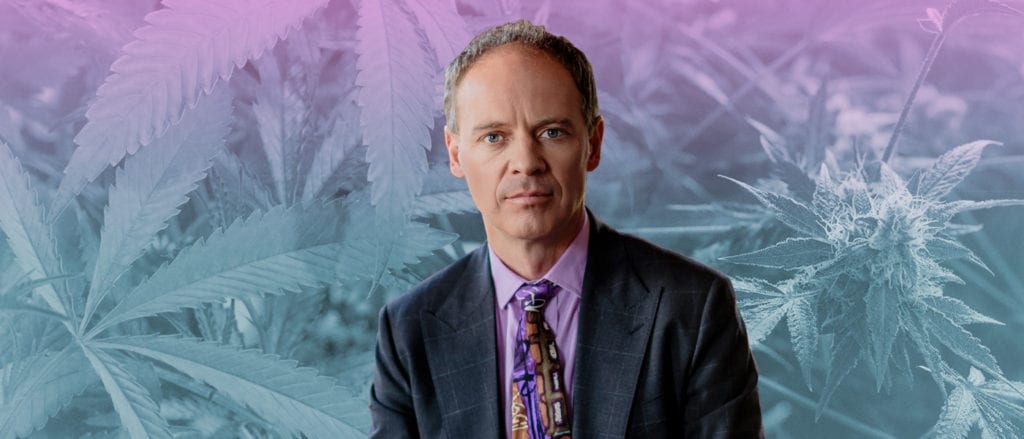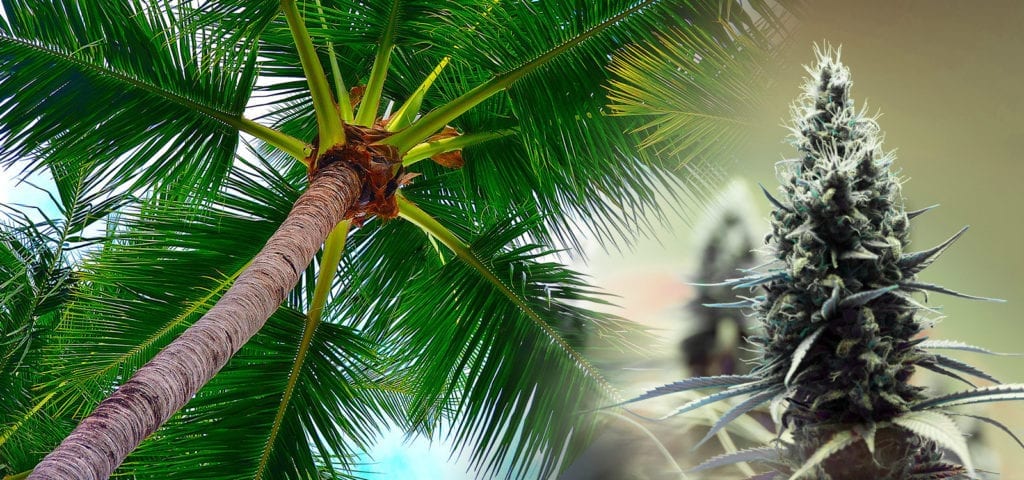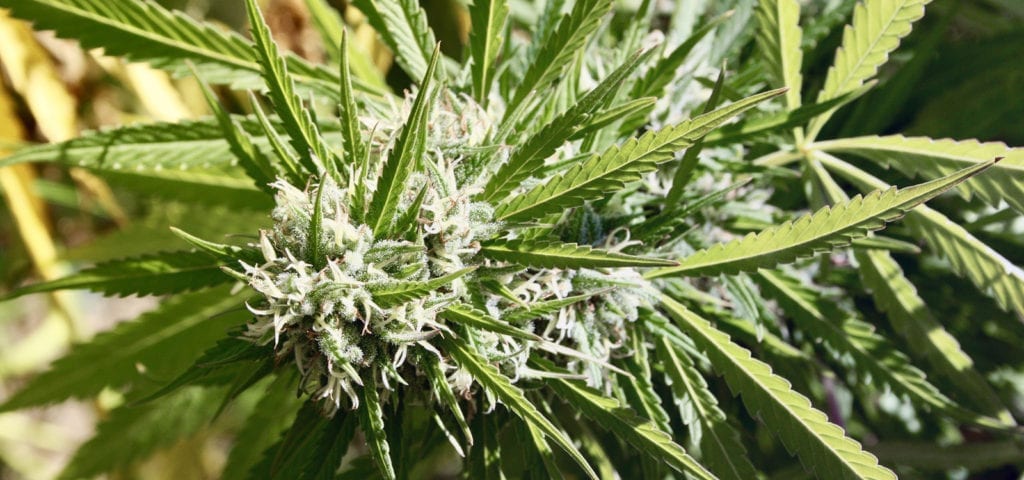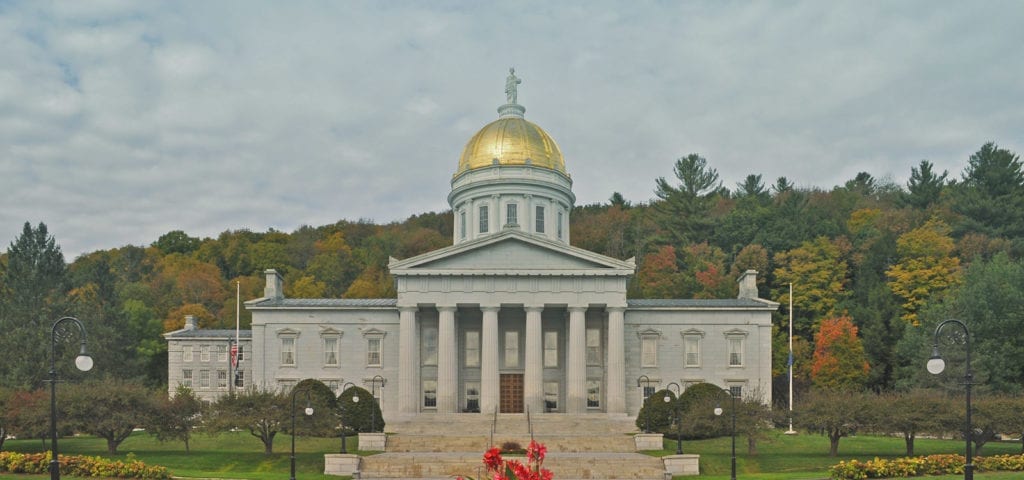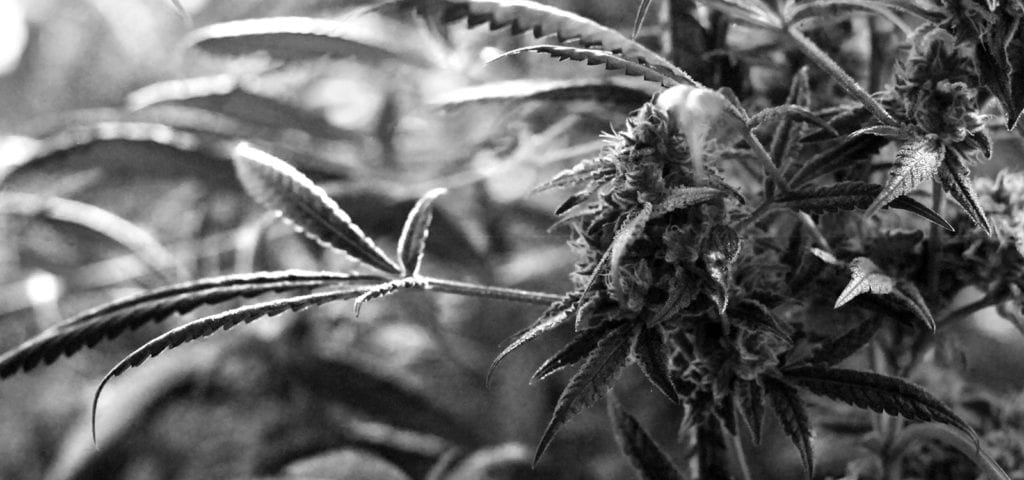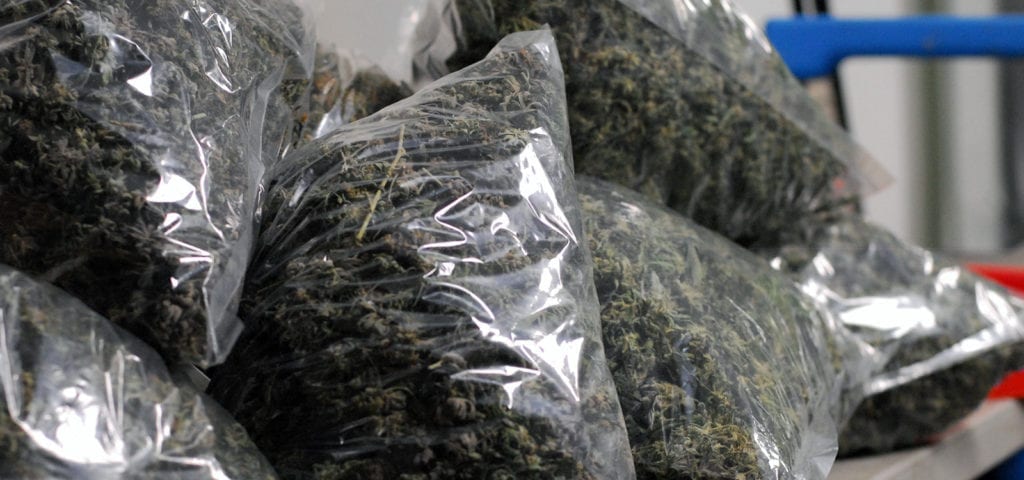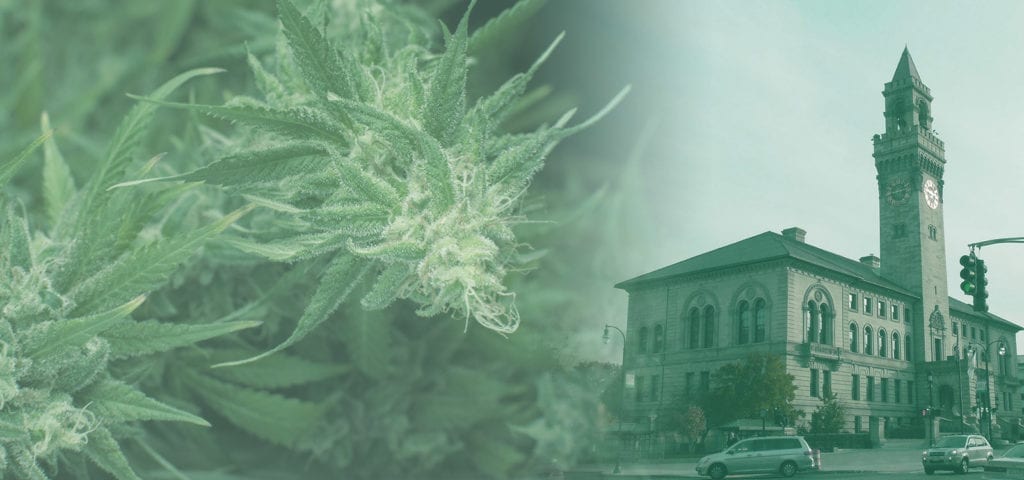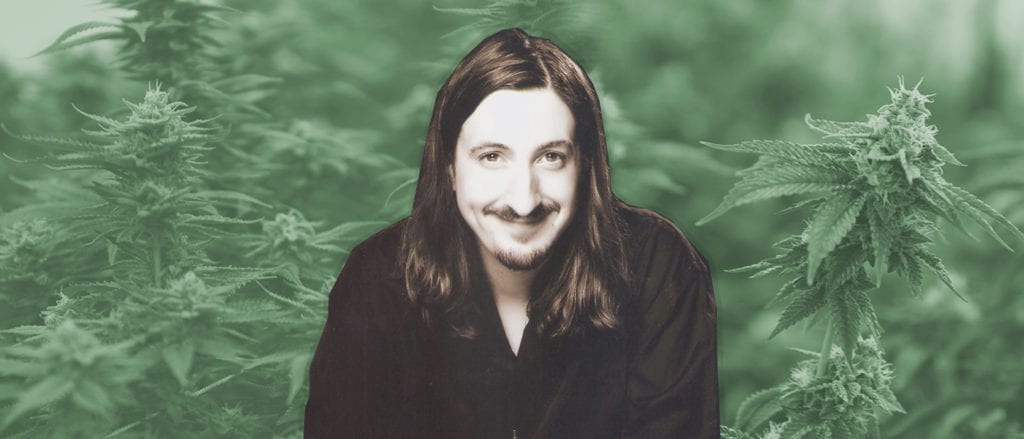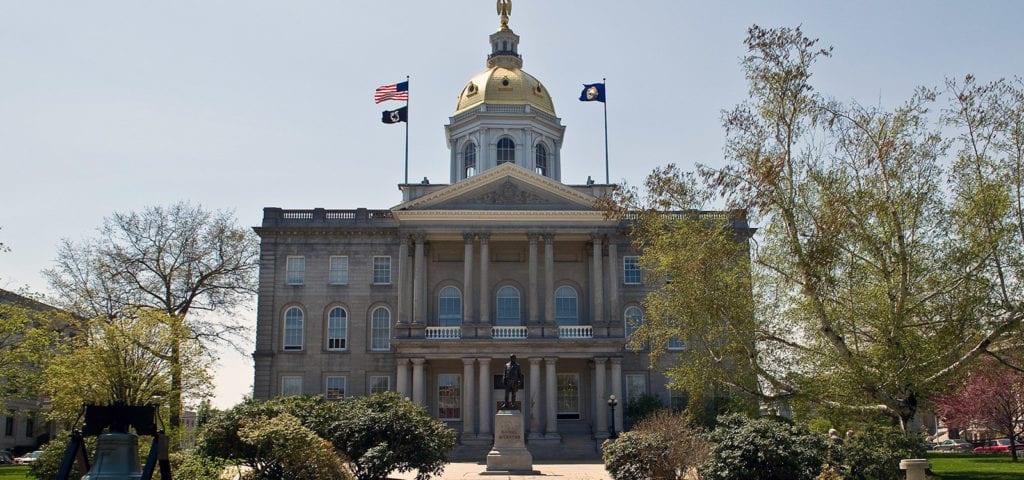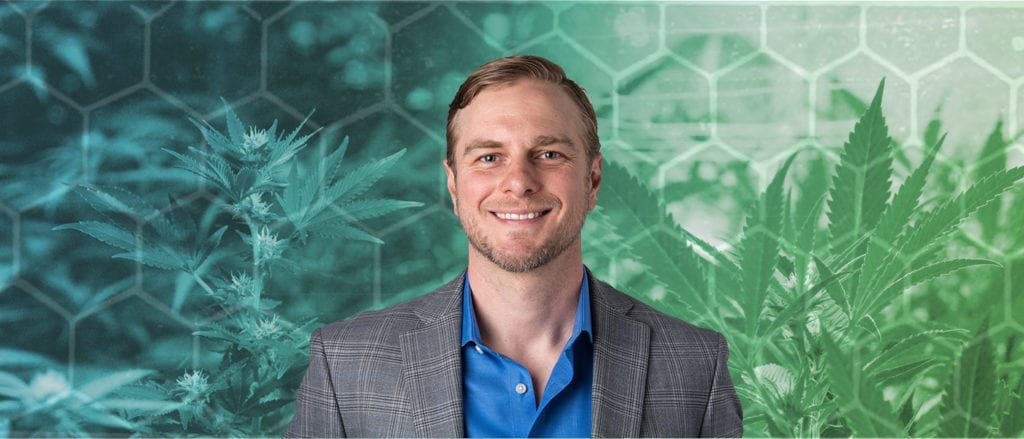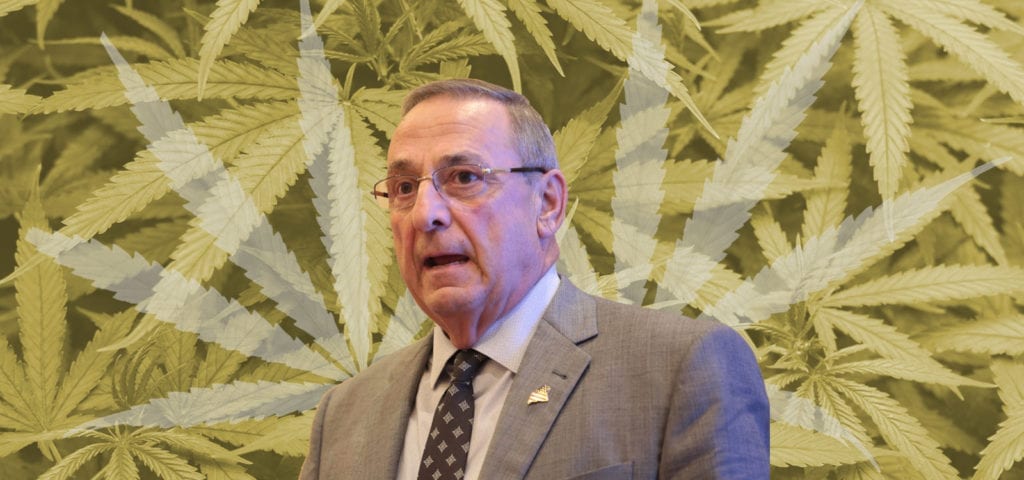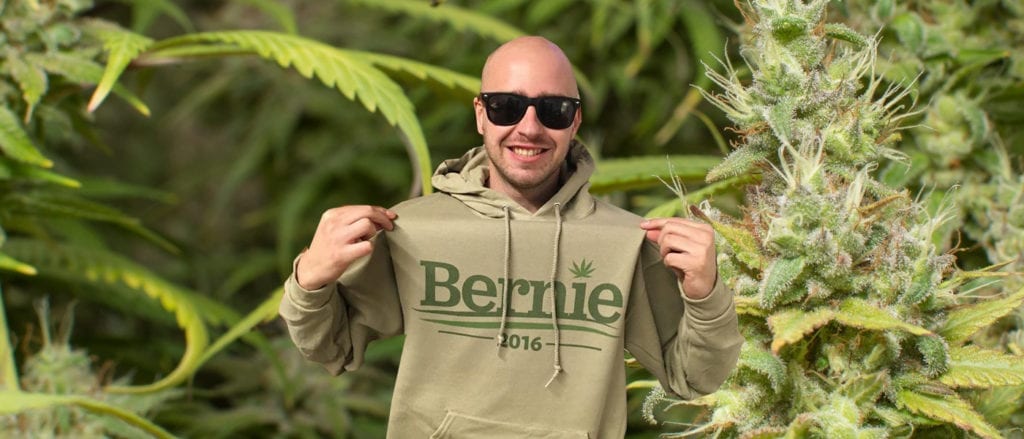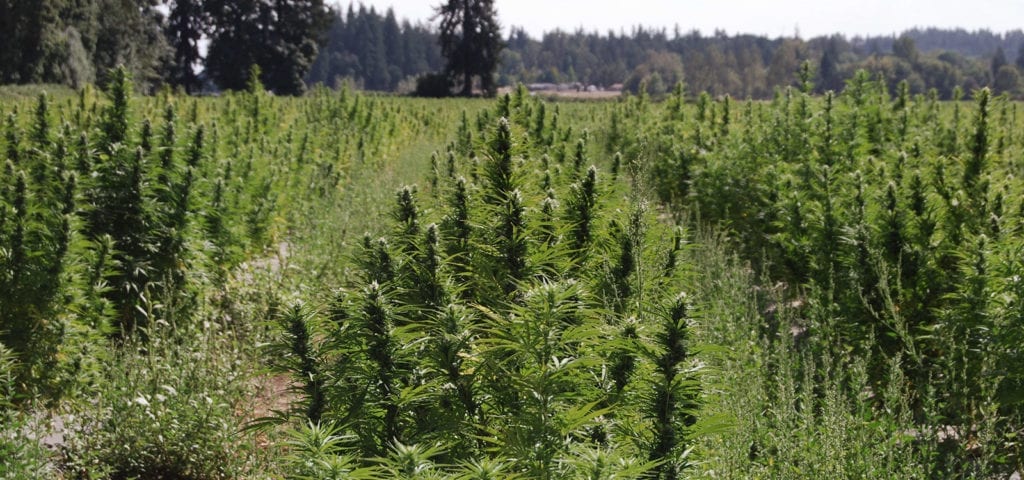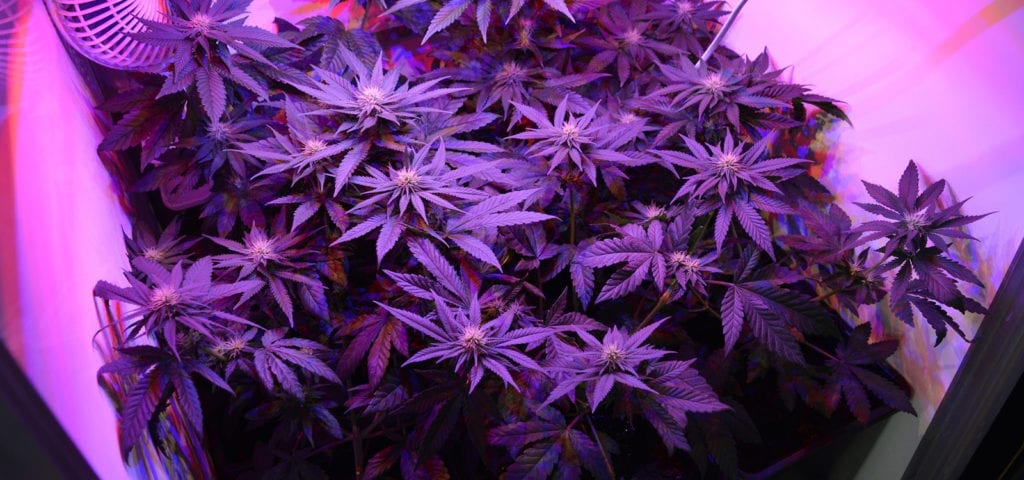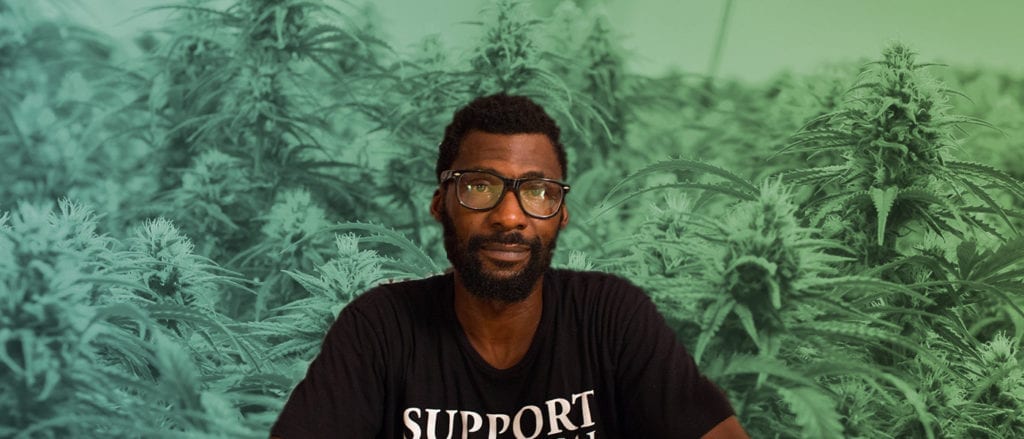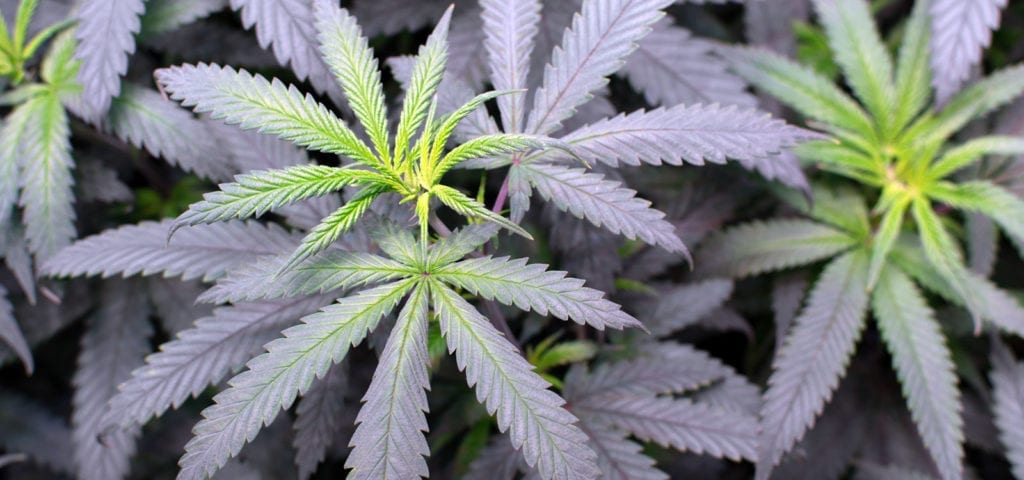Mehka King is a journalist, host of the Cash, Color, and Cannabis podcast, and the filmmaker behind The Color Green: Cash, Color, and Cannabis — a documentary investigating racial disparities in the cannabis space.
In this episode of the Ganjapreneur.com podcast, Mehka joins host TG Branfalt to discuss the evolution of popular media from print to online blogging to podcasts and video content, his experience documenting the cannabis movement, how celebrities — particularly hip-hop stars who have invested in the cannabis industry — could do more to speak up on issues with industry inclusion and fallout from the Drug War, and more!
Tune in to the interview through the player below, or keep scrolling down for a full episode of this Ganjapreneur.com podcast episode.
Listen to the podcast:
Read the transcript:
TG Branfalt: Hey there. I’m your host TG Branfalt, and you are listening to the Ganjapreneur.com podcast, where we try to bring you actionable information and normalized cannabis through the stories of Ganjapreneurs, activists, and industry stakeholders. Today, I’m joined by Mehka King. He’s the filmmaker for The Color Green: Cash, Color, and Cannabis, and podcast host of Cash, Color, and Cannabis. I’m super excited to have him on the show today.
We’re kind of cut from the same cloth, my man. We do a lot of the same things. How you doing, this morning?
Mehka King: I’m doing great this morning, man. You sound like you’re doing better than me. I haven’t had a chance to light anything up, yet.
TG Branfalt: It’s one of those pre-podcast luxuries I’m afforded because we don’t use video.
Let’s start with you, man. Tell me about yourself. You have a background in filmmaking. You went to school for journalism. So, first tell me about yourself, man. How’d you end up where you are right now with the podcast and working on this documentary?
Mehka King: Sure. Like you said, I went to school for journalism, Johnson C Smith University in Charlotte, North Carolina. I was writing early. You know, I started writing for the student newspaper while I was there. I was the co-editor along with my friend Aaron James. And from that point, you know, I just kind of fell in love with being able to tell a story just using words.
So, I proceeded to write for other publications while I was in Charlotte–Charlotte Post, Charlotte Magazine–I had some stories in. I started started a website called Last Word Online in 2004 that was targeted to mainly hip-hop crowds. And it was something organic I built while I was living in Charlotte, and it grew a nice little base, where before you know it, I was being reached out to by writers and editors from other cities. So I had a chance to actually branch out and eventually write for Double XL, and eventually it turned into a basketball … I became a sports journalist as well, and started writing for Slam Magazine. So, I was covering high school basketball in the state of North Carolina.
As that time went on, though, I started seeing myself … I guess, phase myself out, if that makes sense. I grew up reading magazines, for the most part, and then before you know it, websites took over. So, as I’m being a published writer, I’m also continuing to build this website that’s kind of replacing writers. So I had to eventually have a come-to-Jesus meeting with myself, and say that, you know, if you’re really gonna progress as a writer, and progress as a journalist, you’re gonna have to stick with the online market.
So, I started another website called DJs Doing Work, which actually spawned off a film project I was working on called DJs Doing Work, which was a documentary about DJs in hip-hop, which I’m a huge fan of, just the whole DJ culture in hip-hop. So, I started DJs Doing Work, and before you know it again, I was looking around just saying that I feel like maybe film is probably the best option to use when it comes to telling stories for the new generation. Less people are reading print magazines, and even less people are starting to read blogs anymore. It’s more about what you’re seeing visually.
So, I decided to pick up a camera and use the camera to start telling these stories that I wanted to tell and start interviewing these people I wanted to interview. So, before you know it, I started working on a project called Crown Royalty: the History of Charlotte Hip-Hop while I was in Charlotte. It was about the Charlotte hip-hop scene from the beginnings, which I got a chance to get to know a lot of the pioneers of the Charlotte hip-hop scene to the people who were working and making it known back when I was filming this, which was 2010.
That was the very first, I guess, documentary project I worked on. It was 30 minutes long, and I set up an event where we actually showed it at the Charlotte Actor’s Theater, Actor’s Theater in Charlotte, excuse me, in Charlotte, and we drew a great crowd. It was a great reception. And that kind of gave me the spark to know that, yeah, you’re doing it right. That you’re seeing that film and visuals are becoming a bigger part of storytelling, so you might as well phase yourself more into that.
So, from Crown Royalty begat DJs Doing Work, and the DJs Doing Work project that I still haven’t completed. It’s in draft now. And that led to where we at right now with Cash, Color, Cannabis. When we started about a year and a half ago, I had a friend of mine named Royal, who used to stop by my house a lot. He’s a chef by trade, and he was telling me then that he wanted to get into the cannabis industry; he really didn’t know how to do it. So, he had came to me to see if maybe I could help him maybe establish some relationships with media. And I told him then that I don’t think a lot of hip-hop artists, or a lot of hip-hop outlets, would even cover something like this at the moment.
As he was more telling me about it, I was like, maybe I could help you out just by letting me know some of the outlets. And he said High Times. He started mentioning a couple other places, but he also mentioned that from his travels in this industry, going from conference to conference from about late 2014 to about 2015, he had said he didn’t see too many people of color, or too many people who look like him at all, which was a huge shock to me. Because me growing up, all I’ve ever known was I guess, just people smoking weed. Like, it never was the biggest deal, it wasn’t really something that I guess people were really looking at as a negative. So, I was kind of shocked that I wasn’t seeing more people of color getting involved early, especially around 2014 when you started seeing some more states becoming open to medical and recreational cannabis.
So, through his story, I decided that we should try to take on the topic of cannabis and the lack of minorities, lack of people of color in the industry. So, he was a huge with that as far as sparking that idea, and again just me already leaning towards the film aspect of life, I thought that it would be dope to put this project together visually. And what started off as a short film, which was supposed to be about 15 minutes to 30 minutes film focused on Royal turned into a feature that involves a ton of people from across the country who all had the same opinions, and all had the same notions that I had that there should be more people of color getting involved, or at least being aware of what’s going on.
TG Branfalt: To your point that the cannabis industry is dominated by whites, by non-minorities, you’re actually the first black male that’s been on this podcast, and that to me when I realized this, this wasn’t really a shock to me, but I was like, how have I gone this long without finding anybody who’s really immersed in the industry that’s a male of color. I have interviewed black females, and Latinas, and Latinos. So, from you’re doing the podcast, doing the documentaries, what’s your initial take on why this disparity exists? Let’s just start there.
Mehka King: Well, I feel like the disparity exists primarily, and this is a topic that we actually touch on in the documentary. I call it the three P’s: politics, past issues, and pop culture. These three things play a huge role in our community as why we’re not seeing more people of color even pay attention to the cannabis industry.
When I say past issues, I think about, say my mother. My mother, for instance, grew up in the Civil Rights era. She is a staunch … she’s just absolutely against anything that relates to drugs, or anything that she feels can destroy our community. She just is that person. Always has been, always will be. Me growing up, you’re talking about somebody who grew up late ’80s early ’90s, the last thing I thought about was cannabis being a negative, to be completely honest with you. That really was because of what I was seeing at that time through pop culture and through music and through hip-hop, like Snoop Dogg was huge in my life at that moment. Dr. Dre’s The Chronic, you know what I mean, like this, to me, was just stuff that people did. Where my mother, again, at the same time looked at it as a gateway drug to heroine, cocaine, and everything else.
Now, I have a nephew who is 18 now. He’s going to college. His view of cannabis is something totally different from mine. And it’s way different from his grandmother’s. So, I look at it like, when we start saying why we’re not seeing more people of color, past issues have a whole lot to do with that. The way you grew up and the way that you saw cannabis, whether it was stigmatized early, like how my mother saw it, how it was starting to become commercialized like how I saw it, or how it’s decriminalized like he’s seeing it right now, you’re seeing them three vast different ways. And those different ways are still hindering people from saying this might be something viable for us to get into, or might be something to even pay attention to.
We still have a lot of people from my mother’s generation who are controlling politics, and control the media, and control things that you see, and there’s still people like myself who are involved who see it as, “Well, I just assumed everybody was gonna be involved. Like, why would I have to make a noise about this? I just grew up thinking that this was perfectly fine to do anyway.”
So, I think that past issues plays a huge part in it, as well as pop culture. Again, me growing up, Snoop Dogg, Dr. Dre, The Chronic, even later Wiz Khalifa and them, all I knew was weed was something that people just did. But as I started doing this film, what I did’t notice was how people, I guess, actually viewed who does cannabis and who is a consumer.
When you see a show like Weeds, or you see a show like Mary Jane, they’re showing cannabis users, and people who are using cannabis, or even selling it in ways where you either sympathize with them like Weeds, or you’re entertained by them, like Mary Jane. Where if you often see people of color involved in anything drug related, it’s either as a crime aspect of it, or you’re doing this as a survival to get out of something. At no point are you looking at this person and thinking you’re having any sympathy for ’em, you’re looking at it like why are you committing a crime.
So, if you keep seeing things like that in the media, again, it’s gonna turn off people from trying to get involved. When I speak to people, just regular people in the street, this is one of the first things that pop in their minds is, well, I’ma get arrested anyway. Even if they don’t think about how, well even medically how this can help me or anything else, the first thing they think is I’m gonna get arrested by having this in my hand. Like, I don’t care how the law’s changed, I just know for a fact from what I see on TV, from what I’ve seen in my whole life, all I know is getting arrested.
So, you know, when we start replacing the images you see consistently in the media, and we start having bigger conversations amongst generations, we’re gonna start seeing people change. And that’s gonna affect politics. You know, when we see people right now again … Right before House Bill 722 passed in Georgia, I had a chance to be down at the state capital and see kind of a rally for it, and see people speaking up for it, and why we need to have CBD oil, and why we need to start looking into medical marijuana in Georgia, and all I saw was a room full of Republicans, primarily white Republicans, with their wives and children or friends of theirs.
Like how you said, you went through your podcast and didn’t see a black person, it didn’t really dawn on you, it dawned on me immediately that I was the only black person in this whole entire room. Yeah, and it startled me that we’re having this conversation, not because of the issues that we’ve seen in the drug wars, not because of their rats race we’re seeing, or anything like that, we’re having this conversation because these people got together and said, “My kids need this.”
So, when you look through politics, look through past issues, and look through pop culture, we’re really not seeing any reasons why people of color would get involved in this industry, to be completely honest.
TG Branfalt: Well, I want to press these issues quite a bit more. They deserve a lot more discussion than we’re actually able to give them in the timeframe of the show, but before we get into that, we gotta take our first break. This is Ganjapreneur.com podcast. I’m TG Branfalt.
If you are looking for a job in the rapidly growing and highly competitive cannabis industry, Ganjapreneur.com is the place to look. Visit the Ganjapreneur job board today to browse current openings with cannabis companies throughout the United States, from entry level budtender positions to executive level career opportunities. You can also create a profile and upload your resume to be discovered by cannabis recruiters. Visit our job board at jobs.Ganjapreneur.com to create your profile today.
If you are a business owner, you can post your job openings for as little as $25 on our job board to reach the largest and most engaged audience of cannabis professionals on the web. Companies who are listed in the Ganjapreneur business directory are eligible for free job listings. If you are already signed up, contact us today via the website or send us an email at grow@Ganjapreneur.com to activate your unique coupon.
TG Branfalt: Welcome back to the Ganjapreneur.com podcast. I’m your host TG Branfalt, here with Mekha King, filmmaker of The Color Green: Cash, Color, and Cannabis, and podcast host of Cash, Color, and Cannabis.
So, before the break, you had sort of broken down the three points that you cover in your documentary: politics, pop culture, and past issues. I want to put my finger on politics a little bit deeper. It really shouldn’t surprise anyone that minorities are unfairly targeted by police for cannabis crimes throughout the nation. About a year ago, declassified federal files showed that Nixon’s reasons for the war on drugs was to target “blacks and hippies,” and not much has changed since then. And due to such convictions, hordes of folks are prevented from entering the legal industry. If you look at states like New York, you can’t get a business license if you have a past felony issue, even if it’s for something under the Rockefeller drug laws, which are completely draconian, and were definitely targeting minorities with those. Lawmakers in some states have attempted to create so-called equity provisions to address this issue.
What’s your take on those “reparations” provisions in cities such as Oakland, Los Angeles? This is mostly a California thing right now. What’s your take on these sort of proposals?
Mehka King: Well, when I first heard about it, it was through Oakland. And I heard that Oakland was trying to offer sort of a drug war reparation through their new marijuana equity program. And I still think it’s an awesome thing to do. It’s one of those things you’re gonna have to kind of be open towards, you know what I mean. ‘Cause you can’t really have an industry where you are able to legally purchase cannabis from, say like a store, or something like that, or even legally to grow, and you have people who are either still in jail for the same reason, or about to be released, and they had that charge on them, and now they can’t even get into this industry if they wanted to.
So, you’re gonna have to figure out something as far as some way to make that work. I’ve often said to even of friends of mine, it’s very hard for me to see people pull money out of this industry while there’s still people in jail. It’s almost like you can’t … It’s something you gonna have to make sense after a while. But also, what they’re making sense of that, you’re gonna have to make it affordable. At some point, I don’t care how much … Unless you’re giving these people free licenses, most people coming out of jail aren’t coming into money. You know what I mean? Most people who are coming out of jail are looking at a long list of stigmas that’s gonna be attached to them, not just cannabis. You know what I mean?
TG Branfalt: A lot of times, man, the cops have taken their money and assets the minute they get arrested.
Mehka King: Yep. Yeah, yeah, you’re looking at an upward battle the minute you get out of jail. So, I feel like if you are gonna open it up to, like you say, some kind of reparations for the drug war and the people who are incarcerated, you’re gonna have to figure out a way where you can make it financially accessible for them, because you’re not gonna see a lot of people come out of jail with that money to be able to get a dispensary license or even be able to run one, be honest with you. And if you did have it, you’d get more questions.
I had a friend of mine, when we first started filming … as a matter of fact, his name is Branson. I thought Branson, for the longest, was a strain of weed like cookies, you know, growing up. But he was actually Biggie Small’s, Jadakiss’, Puff Daddy’s weed guy. So I had a chance to meet him when I was in New York. And he had mentioned to me about how, you know, he said, “Mek, I actually had the money to do some of this. I had the money to get a license, I had the money to get a lot of things.” He said, “But the minute I put down $40,000, $50,000, the next question is where you got it.”
He made a mention about how with people of color, often you gotta prove to ’em where you got your money from. When you go through even, just knowing this again, knowing that you’re gonna go through these hoops and ladders, people disqualify themselves. They say to themselves why they can’t get into it more than thinking, “Well, this is just a small thing to overcome as far as raising money. Maybe if I get some friends together, we could raise it together.”
You don’t think that far. You think immediately, well, one, if I do get the money, they’re gonna ask me where I got it from. Two, if I do run this business, who’s to say that they’re not gonna come in kicking my doors. You know, people just really run through their minds a lot with the whole getting arrested and this being a thing that they’ve only known criminally. And again, until we get that whole mindset out of our heads, you’re not gonna see a lot of people of color getting involved in this industry.
TG Branfalt: You had mentioned Branson. You mentioned Biggie and Diddy, and in an interview you had said that there are some artists who are knee deep in the cannabis industry that never talk about this race issue. Can you tell me more about what you meant by that comment, and how these people that you’re referring to could act as advocates in an effort to bring light to this issue?
Mehka King: Sure, totally. You know, [inaudible 00:18:26] much praise to Snoop Dogg. I grew up listening to Snoop. But I feel like Snoop Dogg’s one of those artists. You know, we have people like Snoop, we have people like Wiz who are, like I say, knee deep in this industry, whether be investments like Snoop has with websites and into product and things like that, or Wiz where Wiz has his own strain. And Wiz has relationships with Raw Papers. But what we rarely hear from any rappers is their business dealings. They’ll speak a lot about how to consume weed. They’ll speak a lot about how to roll up. Like, I literally learned how to roll a blunt listening to Redman’s How To Roll A Blunt. Just being completely honest.
You’ll learn things like that through music, but you’d have to do deep serious research to realize that some of these people have business tie-ins to this industry. And I feel like if you did see a Snoop Dogg or a Wiz Khalifa speak up more, verus say Al Sharpton. I know Al Sharpton spoke recently in New York about the reparations and making sure that we have a more diverse cannabis industry. That’s all well and good, but you need somebody again, who somebody my generation grew up seeing speaking and knowing their in this industry speaking about that. And I feel like that’s a real flaw that we’re not seeing that from some of these artists.
Now, again, you can’t force people to be activists, you can’t force people to speak out about any and every thing, but I feel like this is something that’ll be beneficial to even their growth in this industry. It’s for them to tie themselves in this conversation about the lack of diversity in the cannabis industry. But then again, it’s up to them. you know what I mean? I would love to see a Redman, Snoop Dogg, Wiz, even Burner. I would love to see some of them get actually involved in this conversation versus just playing it from the background, or just playing it as a middleman for somebody else selling a brand.
TG Branfalt: Let me ask you, man. Would you, if you had the finances, would you enter this space?
Mehka King: Would I enter this space? No I would not, actually. Now I would just say, no I would not, because I see it being more important that we have a media presence than we have actually a presence in dispensaries. But if I did have the money, rather than me being hands on, I would invest in somebody else. To do it, I would invest in somebody else who I felt was really … they really had the business mind to keep something like that going and understood the laws in their city, and understood how things like that change. I would really would do that if I had the money. I’d rather put it in somebody else’s hands who would know how to do that.
I more see that we need a presence in media. If you don’t see people like myself, or you see people like Charlo Greene, I know who was on your show with The Weed Show. If you’re not seeing more people of color in the media even speaking about this, then it’s to the wayside everything. You’re just kind of running in the circle that you’re already been running in for decades in this country.
TG Branfalt: I want to talk to you more about the role of independent media in the cannabis space, but before we do that, we gotta take our second break. This is Ganjapreneur.com podcast. I’m TG Branfalt.
At Ganjapreneur, we have heard from dozens of cannabis business owners how have encountered the issue of canna-bias, which is when a mainstream business, whether a landlord, bank, or some other provider of vital business services refuses to do business with them simply because of their association with cannabis. We have even heard stories of businesses being unable to provide health and life insurance for their employees because the insurance providers were too afraid to work with them.
We believe that this fear is totally unreasonable, and that cannabis business owners deserve access to the same services and resources that other businesses are afforded. That they should be able to hire consultation to help them follow the letter of the law in their business endeavors, and that they should be able to provide employee benefits without needing to compromise on the quality of coverage they can offer.
This is why we created the Ganjapreneur.com business service directory. A resource for cannabis professionals to find and connect with service providers who are cannabis friendly and who are actively seeking cannabis industry clients.
If you are considering hiring a business consultant, lawyer, accountant, web designer, or any other auxiliary service for your business, go to Ganjapreneur.com/businesses to browse hundreds of agencies, firms, and organizations who support cannabis legalization and who want to help you grow your business. With so many options to choose from in each service category, you will be able to browse company profiles and do research on multiple companies in advance, so you can find the provider who is the best fit for your particular need. Our business service directory is intended to be a useful and well-maintained resource, which is why we individually vet each listing that is submitted.
If you are business service provider who wants to work with cannabis clients, you may be a good fit for our service directory. Go to Ganjapreneur.com/businesses to create your profile and start connecting with cannabis entrepreneurs today.
TG Branfalt: Welcome back to the Ganjapreneur.com podcast. I’m your host TG Branfalt, here with Mekha King, filmmaker of The Color Green: Cash, Color, and Cannabis, and the podcast host of Cash, Color, and Cannabis.
Before the break we were talking about the role of independent media. We both went to journalism school. We’ve both written for traditional outlets as well as independent outlets. Where do you see the independent media’s role in this space.
Mehka King: Oh man, I feel the independent media role is the one thing we should be really focusing on currently. You know, again, when we talk about pop culture, you talk about not just music, but you talk about the media and you talk about movies, everything you see. And representation matters. And we really need to see more voices, more people covering this industry from our perspective. And not saying that High Times or Merry Jane, or any of these other publications aren’t doing that, but it’s just one of those things you’re gonna need to do if it is important, as they say, to get more people of color involved in this industry. We’re gonna need more shows like, again, Charlo Greene’s The Weed Show, where she talks specifically from a perspective of cannabis, whether it be how cannabis affects you sexually to how it affects you medically to just, you know, just her having conversations about people smoking in families and things like that.
You need that, as much as you need the show like Cash, Color, Cannabis where our show isn’t so focused on the whole cannabis aspect, but we’re creating a space where people who do consume can come watch and come be entertained by just a good interview and a good show. You need those types of situations happening out here. You need people out here covering these events and actually going and putting mics in front of some of these faces, and you need to see those faces look like you.
You know, again, representation matters a whole lot, and when you see … Like even now, there’s the big push about women being involved in the industry, and that has a lot to do with representation. And again, from Weeds to Mary Jane’s to … You just see a lot of women being portrayed as people of power in this industry. So, of course you’re gonna see more women wondering, where can I fit in? You’re gonna see that more. So, I feel like if you really want to see people of color getting involved in this industry, politics is great. Passed laws is great. But until you see a good representation of what you’re trying to push, then I don’t know what to tell you.
I thought Grow House … Grow House came out a couple of months ago. I thought Grow House was a good example of if you want to get people of color involved, this is a decent image. Now, again, it’s a comedy. It wasn’t like the most serious film ever, but you’re talking about two brothers who are about to leave their regular life to go work in a dispensary. Like again, as funny as that is, and as comedic as it is, and you got Lil Duval and Deray as the stars, that’s still one of them things where if I was somebody in college watching this, I’d be like, hey, I wonder how I can get involved. You know, and it’s simply because you’re actually seeing this.
We need to see more representation, and I feel like the media and the independent media needs to play a bigger role if you want to make that happen.
TG Branfalt: On this idea of representation, when you were filming your documentary, did you face any resistance from potential subjects due to fear or reprisal of being associated with the
industry?
Mehka King: Oh yeah! Oh yeah, yeah. You know, it’s funny. When I initially started this, I’ve had conversations with people, who eventually would become vocal about the topic, who told me this wasn’t a conversation. That within the cannabis industry, cannabis sees no race, and there’s no problem with race in this industry at all. And I knew better. But yeah, I’ve faced backlash from a couple of people. There’s been people who didn’t want to speak on camera. There have been people who don’t want to ruffle feathers because they do have businesses that are not solid just yet, and they don’t want to mess that up by drawing a line. And my response to them was I’m not drawing a line, and I’m not trying to make you draw a line.
What I’m trying to do is create a conversation that needs to be had so you’re not having this conversation 10 years down the road, and people saying why didn’t you have it then. Why didn’t you have it earlier? At some point, you’re gonna have to have an uncomfortable conversation with people about what you’re feeling. And if you don’t do that, then you’re gonna forever be … no matter how long it takes, it’s gonna take you longer to get that out, and the longer it takes for you to get that out, the less people gonna have sympathy about your issues.
So, I feel like right now is the perfect time. So, yeah, I did fight some people who did have a little backlash against the production, but it’s also why I did it on my own, and I funded it on my own. I didn’t want to have to be beholden to what people felt, or other people’s interests. I wanted to make a story that I wanted to make. I wanted to take it on as if I was assigned by Double XL, or was assigned by a magazine like that to cover this industry. I want to cover it like that. And I have been able to despite the fact that we’ve faced a little bit of backlash. I don’t anymore. You know, people are much more open to having this conversation currently, but when we first started last January, no. No, we faced a lot of backlash actually.
TG Branfalt: And what were some of the most surprising things you learned while filming the documentary?
Mehka King: One of the most surprising things I learned was there … As much as we do have a lot of prominent names … I guess when I say prominent names, like people like Wanda James, or Charlo Greenes. There’s a huge, huge, huge uprising of younger people, like Millennials and that type who are really hands on in this industry and they’re gonna make some of these changes. One guy I ran into while I was in New York, Mike Edon, he has a website called HerbsTV. They make branded content where they partner up with different brands and they go to events, and they kind of just create the content for those events and those brands. While I was speaking to him, I was sitting there looking at him like, yeah, you’re the type of person we need to see more of. You know what I mean, just somebody who is in the younger crowd who has this cool take where you just want to go out and cover it. You just want to make sure that people see what’s going on from your perspective. We need more of you.
So it’s dope to see younger people so energetic and being so creative about how they want to get in the industry, and not so much touching the plant. I heard a lot of people speak about how they want to come up with apps and come up with media outlets and things like that, and not so much I want to have a dispensary, or I want to have an edible brand. So, I thought that was one thing I did learn from the documentary is that this younger generation has a lot of energy about this industry, and they have a lot of creative ideas that really will eventually bring more people of color in.
You’re talking about technology, you’re talking about media, you’re talking about things that can’t be regulated by law, unless Donald Trump really just trips out one day. Can’t be limited by law as opposed to dispensaries and dealing with the plant. You’re talking about things like that. You start conquering technology and media, then yeah, you really got power now.
TG Branfalt: So, I want to talk to you a bit about Georgia. That’s where you’re living now, but you’re not from there, right?
Mehka King: No, I’m from Boston, yeah, but I’ve been living in Atlanta for seven years now.
TG Branfalt: And then your home, where you’re from, goes and legalizes on you while you’re-
Mehka King: Exactly! But you know what? It helped the conversation between me and my mother. Because my mother, again, when she first heard I was doing the documentary, it was similar to my man from Weed-A-Kit. Like the first thing she said was don’t ever smoke on camera, and avoid getting arrested. And now that Massachusetts is going through the changes they’re going through, me and her can actually have full conversations. Like, she tells me how her and my father met at a jazz club, and then she’ll start speaking to me about jazz and weed and how they used to terrorized Ray Charles.
She said, I remember when they used to arrest Ray Charles left and right.
TG Branfalt: Yep.
Mehka King: I’m glad they did open it up. I’m mad I missed it, but I’m glad they opened it up.
TG Branfalt: I want to share a story with you quickly.
Mehka King: Sure.
TG Branfalt: A friend of mine was arrested after police discovered a huge supply of cannabis: edibles, flower, oil, you name it. A white guy. Didn’t spend a day in jail, rather he was given lengthy probation. This really sort of shocked me, because this is Georgia.
Mehka King: Yeah.
TG Branfalt: And when he was arrested, I half-jokingly said, “Well, we’re white.” But that’s not really a joke, it’s a cold truth. Is that what you see in Georgia, these disparate sentences, and what’s been your experience living down there.
Mehka King: Oh yeah, you often see it. You know, depending on who you’re dealing with, people have honest, like how you have with your friend, you’ll have an honest assumption, they’ll have an honest answer about what you said. They’ll know that this is real. And one thing about being in Georgia is as a person of color you will run into police based off what they think you have. I could be smoking a cigarette, I could be smoking a Black and Mild outside. A cop driving by could believe that’s weed. Ad that’s enough for them to start a whole search on you. Run your background, if you don’t have your ID on you, that’s immediately you’re getting arrested down in Atlanta, if you don’t have an ID on you. You can run through a list of reasons why you gonna get arrested by simply having the thought that you have weed.
So yeah, to hear somebody actually picked up with actual product on them, and the most they got was probation, I’m not overly shocked, but it’s one of those things that again, in order for us to fully see change in, we’re gonna have to take control of a lot of things. And again, pop culture, past issues, and politics, we gotta really start taking control of that because there should be no reason why there’s a huge disparage, like you said, where one guy could have all this and get probation, where I can, and this has happened to me before, I can be sitting on a corner smoking a cigarette, and that cigarette could be assumed to be a joint, and next thing you know you’re in handcuffs until they figure out who you are. That’s a terrifying feeling if you ever go through that to know that your freedom is based off what they decide, or what they figure out or what they find out.
I’ve done jail time based off me not having my bus pass one time and having a warrant. And all that started because I was smoking a Black and Mild on the street and the cop thought it was a blunt. And immediately approached me, immediately put me in handcuffs, immediately asked for my ID, immediately ran my ID, and said, well, you do have a warrant for this. And next thing you know, you’re sitting in jail. You’re sitting in jail for a little while until somebody can bail you out for the $75 that they needed to bail you out for.
TG Branfalt: So you were in Georgia when they passed that CBD legislation. In your opinion, as a journalist, as documentarian, as a resident of the state, you know somebody who watches this issue closely, what’s it gonna take to get a comprehensive medical cannabis program set up in that state?
Mehka King: Set up in that state? You know, I’m gonna agree with a guest I had on my podcast on Tyler Chronicles. I’m gonna agree with him. I believe Georgia would have to almost go bankrupt in order for something that serious. He made a point. He said if you realize a lot of the states, including even California were close to running out of money before they really came up with mission of saying let’s go here.
TG Branfalt: Alaska.
Mehka King: Yeah. I feel like Georgia’s close to the same thing. People often say that they look at Georgia, and they think of Atlanta. Well, Atlanta and Georgia are two different places. And if you come down here, they’ll tell you the same thing. What Atlanta’s okay with doesn’t mean the rest of Georgia’s okay with it. So, it’s gonna be a slow sell to sell what I want to do here to people in Athens. And people in Barstow, and people way out in Georgia. It’s gonna be a hard sell. ‘Cause again, now you’re dealing again with past issues, politics, and pop culture. You’re dealing with people who are knee deep in Civil Rights era stuff, and still into war on drugs things, and they don’t want to see anything. Don’t care what they’re seeing in the news right now. So, you’re talking about … I personally would feel like maybe it’s gonna take a while.
I would have really thought Florida would have jumpstarted Georgia. I really doubt that Georgia’s gonna sit back and watch Florida not only pass medical, but watch them make a lot of money off of it before they start saying to themselves, “Maybe we should get involved in this.” But I really feel like Georgia’s gonna have take a really … it’s gonna have to go through some real bad times before they say this might be an answer for them.
TG Branfalt: These are all such deeply ingrained issues, not just in cannabis politics and the cannabis industry, but these are very deep, deep social issues. How did you separate, if you were able to separate, these industry and political issues from the social issues when you were filming your documentary
Mehka King: It is hard, ’cause a lot of times they are all one and the same, or they can be all one and the same. What I try to do as always, I try to take on the story from the perspective of me just being a journalist. That you really want to get the best story possible. So, you’re gonna have to ask as many sides, you’re gonna have to be as unbiased as possible, and just allow people to give their sides. So, I don’t try to step in front of anybody who has an opinion. I don’t want to say … and I don’t want to make it seem like I’m trying to push a cause. I just really want to get a good story out that’ll make people still have this conversation years from now, and still be relevant for people years from now.
So, yeah it was hard to do, but it wasn’t one of those things that I tried to separate. You’re not gonna be able to at all times. Like, politics and pop culture, like I say, could be one and the same. Like, I’ll see Jay-Z campaigning for Hillary Clinton, just like I’ll see a star campaigning for Donald Trump. You can’t separate these two things in America.
TG Branfalt: What’s going on next with the film? Are you screening it right now? Do you have planned release?
Mehka King: We are planning to debut it next year, actually, in the Atlanta Film Festival. We’re heading to edit at the end of this month. We’ve got one more shoot to do in L.A., and then we are absolutely done. But we’re shooting to debut it at the Atlanta Film Festival next year. And after that, hopefully I can get into another couple of festivals. We have some festivals we have in mind targeted. I’d love to get into South by Southwest. I’d love to do the Martha’s Vineyard Film Festival, and the ABFF. But we’re definitely gonna do the Atlanta Film Festival.
After that, we’re probably gonna do some private screenings in all the cities that we did film in, from Atlanta to L.A., New York, DC, and definitely my hometown Boston. Gotta take it back to the bean. And then after that, who knows. I would love to see it on a streaming platform. I really think this is one of those conversations that you’re gonna keep having. It’s one of those conversations that no matter when you play this documentary, it’s still gonna be some problem in here is still gonna be relevant to still having a conversation.
So, I feel like it’s tons of growth as far as how we can screen it, or what we want to do with it. But I do know right now, next February’s gonna be the first time we’ll actually screen it on a large scale, so in a film festival, it’s gonna be there. I know this. We’re definitely gonna do that.
TG Branfalt: In the meantime, where can people find out more about you, your projects, the film, the podcast, how do they link up with you, Mehka?
Mehka King: Sure, sure. They can find us at Instagram actually, @thecolorgreenmovie, that’ll probably be the best place. We have a lot of behind the scenes clips, pictures, and all that from all of our shoots. You can also find some more at Vimeo. You can log on to our Vimeo page. That’s V-I-M-E-O.com/thecolorgreenmovie. You can see our two trailers. You also can see some more behind the scenes footage from some of our shoots there. And also, you can check us out at cashcolorcannabis.com. There we have links to the podcast, we have links to the trailers, and links to myself as far as just learning a little bit more about me, and learn a little bit more about what we’re trying to do with the Cash, Color, Cannabis brand as far as the podcast, the events, and the blog.
TG Branfalt: Well, man, these are really, really important things that you’re tackling. And I’m real excited to see the documentary in its finished form. I might have to take the trip to Boston to check it out, though. I’m an East Coast guy.
Mehka King: I would love for that, man. But you know what? I’ll tell you what. When we get the final edit, I’ll make sure I’ll get you a chance to see the screener. I’ll get you an early chance to see that.
TG Branfalt: That would be awesome, man. And definitely keep us posted as to the progress of where it’s getting screened. I think that this is a conversation that needs to be had. I think it’s an important conversation that isn’t really being had for the variety of reasons that you mentioned. And again, I’m really thrilled that somebody is really taking this issue and putting it on a screen, and putting it on a podcast, and getting the word out there that something needs to occur within this industry. Someone’s gotta be the advocate for it. Good on you, man. And I appreciate your time for coming on the show.
Mehka King: Man, TG, appreciate you. Like I said, I don’t normally like doing interviews, but this is great. I do appreciate your time, I appreciate you being so, just allowing me to speak a little bit today.
TG Branfalt: Hey man, we’ll link up soon, maybe on the East Coast, huh?
Mehka King: Yes sir, definitely, definitely. Appreciate your time.
TG Branfalt: You can find more episodes of the Ganjapreneur.com podcast in the podcast section of Ganjapreneur.com and in the Apple iTunes store. On the Ganjapreneur.com website, you will find the latest cannabis news and cannabis jobs updated daily, along with transcripts of this podcast. You can also download the Ganjapreneur.com app in iTunes and Google Play. This episode is engineered by Jeremy Sebastiano. I’ve been your host, TG Branfalt.

